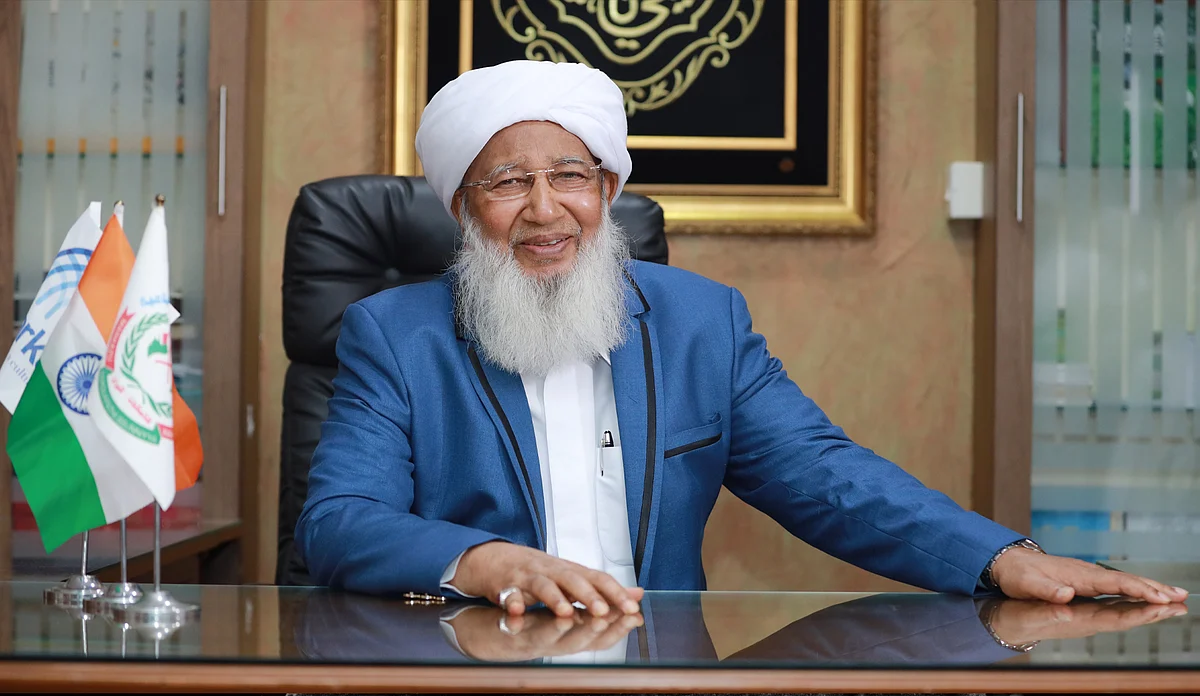Who’s behind the last-minute reprieve for Kerala nurse Nimisha Priya?
As India hit a diplomatic wall, a religious leader stepped in — and Yemen responded

Dubai: As the clock ticked toward July 16, the date set for Nimisha Priya’s execution in Yemen, most believed all hope was lost.
India’s Supreme Court had been told that the government could do little. Yemen’s judiciary had upheld her death sentence for the 2017 murder of her Yemeni business partner.
Formal diplomatic channels were limited — India has no embassy in Yemen. Even efforts to contact the victim’s family had gone nowhere for months.
Then, almost against the odds, came a reprieve.
At the center of this unexpected breakthrough is an unlikely figure: Sheikh Kanthapuram A.P. Aboobacker Musliyar, India’s Grand Mufti and an influential cleric. His quiet intervention — through religious networks, not government backchannels — may have been the decisive turning point in saving Priya’s life, at least for now.
Behind the reprieve
While the Indian government had made what it called “concerted efforts” to delay the execution, sources told ANI that the real window for negotiation only opened after Kanthapuram stepped in.
Through his ties with scholars in Yemen’s Sufi circles, particularly those connected to the revered Sheikh Habib Umar bin Hafiz, the Grand Mufti reportedly made contact with key clerics close to the victim’s family — a connection no one else had managed to establish.
“I don’t know the family, but I contacted responsible scholars in Yemen from afar,” Kanthapuram said. “They understood the situation. Islam is a religion that places a lot of importance on humanity.”
In Islam, the family of a murder victim has the right to pardon the offender, often in exchange for “blood money”. The family’s willingness to now engage in dialogue is being seen as a possible path toward clemency — one that could not have begun without Kanthapuram’s outreach.
A rare breakthrough
On Tuesday, PTI reported that a meeting had been scheduled between the victim’s family — relatives of Yemeni national Talal Abdo Mehdi — and representatives of Sheikh Habib Umar. According to sources, it was the first time the family agreed to speak, and that “only through Kanthapuram’s intervention” did this become possible.
For years, contact with the family had proved impossible. But Kanthapuram’s religious standing and his link to the Sufi order respected in Yemen appears to have opened a door that diplomacy could not.
His office later confirmed they had received official documentation from Yemeni scholars stating that the execution has been postponed, and that ongoing discussions would continue.
India’s limits — and a new hope
Earlier this week, India’s Attorney General R. Venkataramani told the Supreme Court that the government had "reached the limit" of what it could do. “It’s not like any other part of the world,” he said, referencing Yemen’s complex political situation.
Yet behind the scenes, the Grand Mufti’s office said he had also notified the Prime Minister’s Office about his outreach and had requested support to build momentum for negotiations.
A story still unfinished
Nimisha Priya’s story is far from over. A nurse from Kerala’s Palakkad district, she moved to Yemen in 2011 and later partnered with Talal to open a clinic — a legal requirement for foreigners. Their relationship deteriorated, and in a desperate attempt to retrieve her passport, Priya sedated him. He died from an overdose. The subsequent dismemberment of his body only worsened her case in the Yemeni courts.
Yet amid the legal horror, her case has found unexpected champions — not only among politicians and activists, but now also in a senior religious figure who leveraged faith, not force, to stall a death sentence.
Who halted her execution?
Not just the Government of India.
Not just legal appeals.
But a cleric with no diplomatic badge, who picked up the phone, contacted distant scholars, and asked them to consider mercy.
Whether this will lead to a full pardon remains uncertain. But what is certain is this: the door to life reopened only after the Grand Mufti knocked.
Sign up for the Daily Briefing
Get the latest news and updates straight to your inbox
Network Links
GN StoreDownload our app
© Al Nisr Publishing LLC 2025. All rights reserved.
